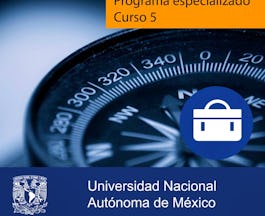Filter by
The language used throughout the course, in both instruction and assessments.
916 results for "communication skills"

The Hong Kong University of Science and Technology

HEC Paris
Skills you'll gain: Emotional Intelligence, Leadership and Management

University of Michigan
Skills you'll gain: Leadership and Management

Universidad Nacional Autónoma de México
Skills you'll gain: Negotiation
 Status: Free
Status: FreeSkills you'll gain: Collaboration, Communication, Negotiation

University of Colorado System
 Status: Free
Status: FreeEIT Digital
Skills you'll gain: Leadership and Management
 Status: Free
Status: FreeUniversity of Colorado Boulder
Skills you'll gain: Health

University of Colorado Boulder
Skills you'll gain: Leadership and Management, Strategy, Strategy and Operations, Marketing, Entrepreneurship, Social Media

Coursera Project Network
Skills you'll gain: Writing
Searches related to communication skills
In summary, here are 10 of our most popular communication skills courses
- Voice of Change: Communicate with Teams for GenAI Adoption: Microsoft
- Business Case Analysis: The Hong Kong University of Science and Technology
- CAPSTONE: Your Leadership Challenge: HEC Paris
- How to Create a Good Business: University of Michigan
- Proyecto final sobre negociación para un mejor clima laboral: Universidad Nacional Autónoma de México
- Diversity Leadership for Everyone: Alignor
- Time, Change, and Decisions for Marketing: University of Colorado System
- Quantitative Model Checking: EIT Digital
- Strategies for Audience Growth and Promoting Music Brands: GRAMMY GO
- Health, Society, and Wellness in COVID-19 Times: University of Colorado Boulder












